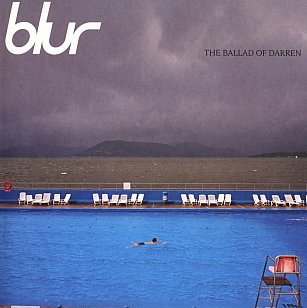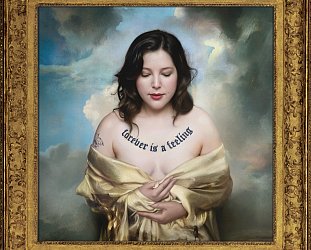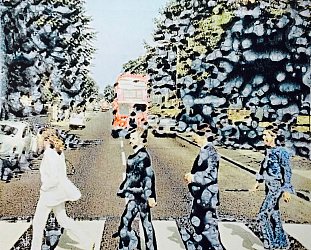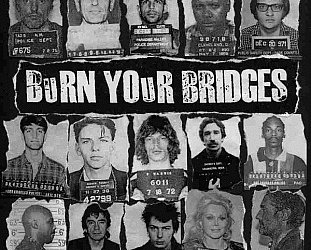Graham Reid | | 1 min read

There's a very telling song towards the end of this new Blur album.
It is Avalon and in it you can hear the unease which success brought them during those Britpop years when these educated middle-class chaps went head-to-head with working-class Oasis.
“What's the point of building Avalon if you can't be happy when it's done?” asks Damon Albarn in an almost defeated speak-sing.
But then the next couplet pivots to something broader: “Who's in the race again? Doesn't seem a long time since the last one.”
And later it stings with the contemporary conflicts: “And then the grey-painted aeroplanes fly over on their way to war”.
This is writer Albarn and Blur – reformed again after an absence of eight years since their excellent The Magic Whip – reflecting on the times, who they are and have been (“I met you at an early show on The Ballad), and of those who've followed them.
Or who haven't bothered: “We crossed the world, we disappeared and no one looks to see if we are coming back” on Goodbye Albert.
The Ballad of Darren – an unusual album title and in a cover by Magnum photographer Martin Parr which is a suitably menacing and disjunctive image – opens with a suitably uneasy and reflective line: “I just looked into my life and I saw you're not coming back”.
And the album is full of discomfort and doubts, all carried by gorgeous melodies, Albarn's understated delivery and Graham Coxon's typically precise or abrasive guitar.
Nine albums in and more than 30 years on from their debut, Blur have delivered an album of emotional and musical maturity which is both personal and universal.
On St Charles Square – the most overt rock song here – Albarn sings, “I fucked up. I'm not the first to do it, must forgo now your smile”.
They weave their lyrical ambiguity, complexity and insight around tasteful and memorable tunes (Barbaric with “We've lost the feeling that we thought we''d never lose”) in songs which rise over an untethered substructure (the strange piano on Russian Strings) or deliver a world-weary directness (The Everglades).
The Bowie-esque ballad The Heights on the album brings things full circle (“I'll see you in the heights one day . . . I'll be standing in the front row next to you”) and The Swan in the expanded edition is quietly loaded of compassion, doubt and hope.
The Ballad of Darren confirms that age and uncertainty suit them.
They've come a long way but the journey – their solo diversions also – has been fascinating. And while this is a long way from the cheerful but astute pop of their youth, their audience from then is the audience for this.
.
The Ballad of Darren is available on Spotify here, and on CD and vinyl.





post a comment